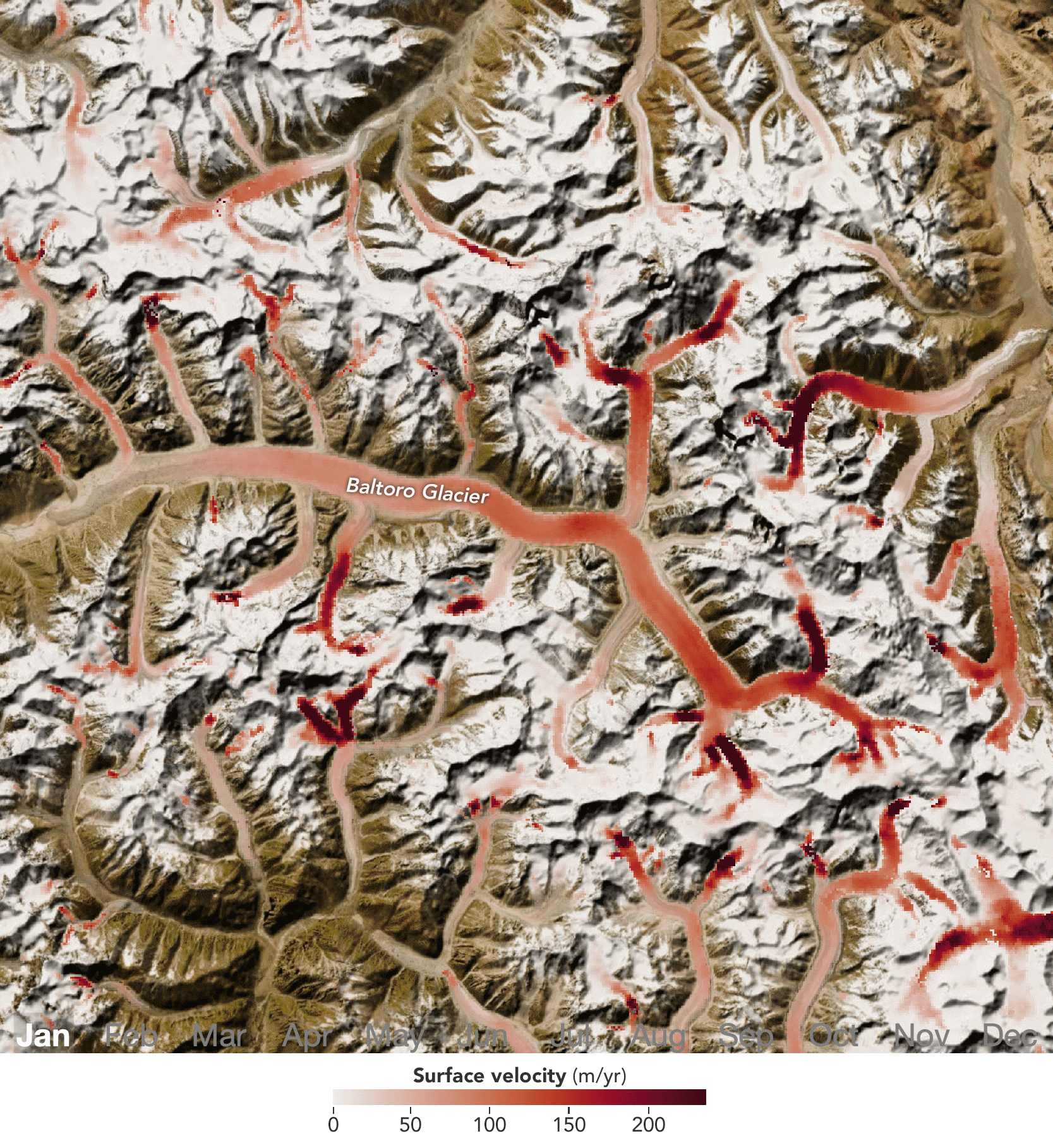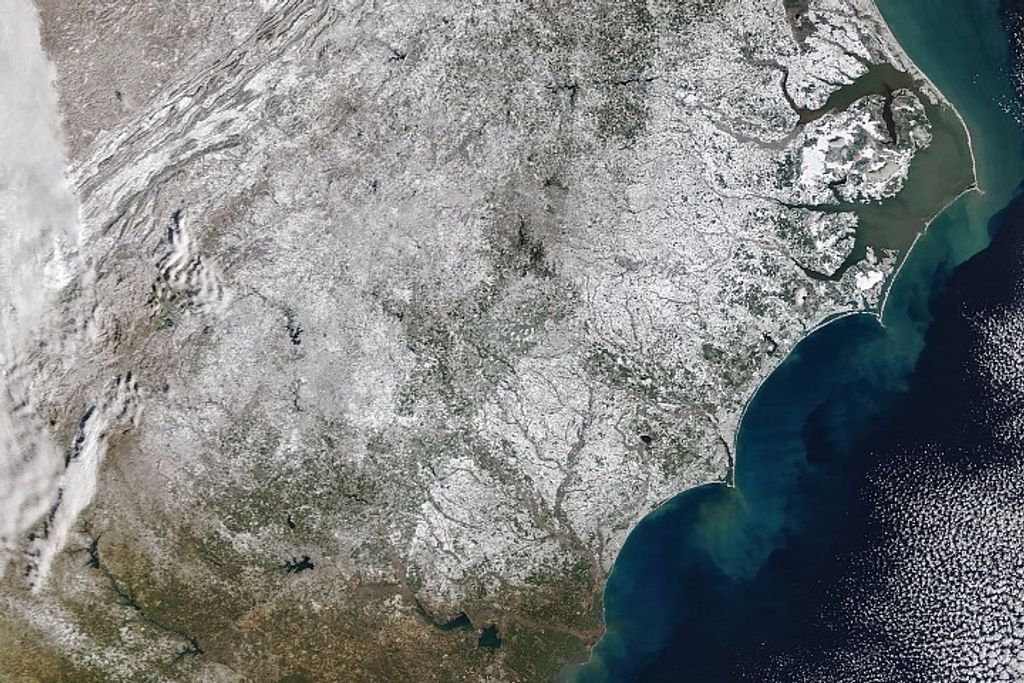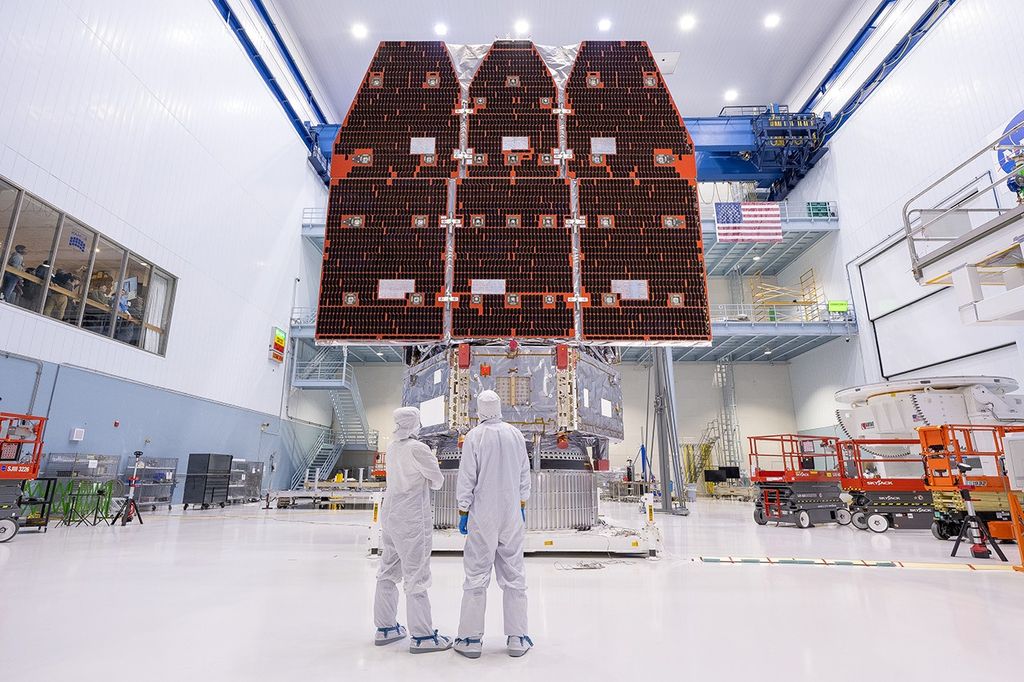Tricia Mack
Contents
Personal Essay
I am writing this essay after just receiving a phone call from a friend of mine…from the International Space Station…and I’m in Moscow, Russia. How did I get here?
When people ask, “how did you know you wanted to work for NASA?” my answer is: it all started in 8th grade Earth Science class. Now I realize this may sound like the-answer-that-every-teacher-and-parent-wants-to-hear, but it’s truly my story.
Growing up in Rochester Hills, Michigan, both my parents were teachers so education was important in our family. My dad encouraged me to study math and science, not necessarily so I would go into those fields, but so I would have the choice if I wanted. This is a life lesson that still serves me well—I work hard so I can choose my own path.
Back to 8th grade. Earth Science class was required and each week we studied a different subject. I saw the iconic photo of space-suited astronaut Bruce McCandless on a Manned Maneuvering Unit untethered from the space shuttle, and it captivated me. I was in awe. How could engineers design and operate such a system? That’s when I knew I wanted to work for our nation’s space program, and what would be more exciting and challenging than working with people who were spacewalkers? I was hooked and the goal was set.
While attended the University of Michigan studying Aerospace Engineering, I learned about the co-operative (“co-op”) program where you alternate university terms with working at NASA. At that time, NASA only hired permanent employees from their co-op program, so I knew that I had to secure a co-op position to fulfill my dream. I applied through my university…and I wasn’t selected. This was the first—though not the last—time in my career where I needed a backup plan. Sure, my school didn’t pick me to co-op, but that didn’t stop me. I contacted NASA at the Johnson Space Center (JSC) and asked if I could apply directly to the program…and I was selected. I often look back and wonder if I didn’t have the determination to pursue an alternate solution, where would I be? I was a 19-year old making a decision that put me on my career path with NASA.
After graduation, I accepted a permanent offer and spent the next 14 years in the Extravehicular Activity (EVA) or “spacewalk” Group where I worked my way up to an instructor and flight controller then finally to the Systems Group Lead. Some of my proudest, most challenging and fondest memories are working space shuttle and International Space Station flights with my teammates—the flight control team, astronauts, and other engineers, including those from our international partner agencies. Working as a team to accomplish such a momentous goal—to build the Space Station, one element at a time—what could be more rewarding?
As an EVA lead, my team and I were responsible for planning the spacewalks, training the crew and working in Mission Control Center—Houston (MCC-H) during them. The crew’s lives and the success of the mission were in our hands. It was a huge responsibility, a tremendous amount of work and, the most fulfilling work imaginable. To this day, I love to look up in the night sky for a station pass (you can find when it goes over your town at http://spotthestation.nasa.gov) and know that we have maintained a continuous human presence on board for over 14 years.
One of the great things about working for NASA is that around every corner there’s an opportunity to learn something new and directly contribute to the success of a program. Just such an opportunity presented itself for me to move to Moscow, Russia to be the Moscow Technical Liaison Office (MTLO) Manager. At first I was hesitant—do I really want to move to Moscow and essentially “start over” in a new position while creating some sort of everyday life for myself? My love—really need—for a challenge coupled with my passion for human space flight made this an easy answer—yes!
I’ve lived in Russia for more than 3 years. As the MTLO Manager, I help solve technical issues and exchange data between JSC and our Russian colleagues. The wide range of duties keeps the work interesting. Once such memorable experience was supporting a Soyuz landing in Kazakhstan—we rode in a Russian helicopter to the landing site and saw the Soyuz spacecraft on parachutes before they even landed! Right after the Soyuz landed, we landed in our helicopter close by to retrieve the earlyreturn science. The site was abuzz with excitement as the Russian ground team extracted the crewmembers from the vehicle. I remember a co-worker shouting out “welcome to earth!” to the returning crewmembers. It’s not every day you are in the steppes of Kazakhstan welcoming home a crew from their 6-month stint on the Space Station!
My personal and professional advice is based on four guiding principles: 1) find your passion—it will fuel you and make work feel like play, 2) do not take “no” for an answer when you want something badly enough—there’s always an alternate path, 3) be open to possibilities. Some of my best experiences have been opportunities that were placed in my path and I was open to receive them—they were not meticulously planned (though I resisted the urge), and finally 4) dream big! Do not hold yourself back out of fear or because someone tells you it can’t be done. Your possibilities are truly boundless.
Biography

In high school, when other students may have asked for a spring break trip to the beach, Tricia Mack asked to go to Florida to tour the Kennedy Space Center.She still remembers the tour and excitedly taking photos of the space shuttle launch pads (even empty).Years later, she’d actually work in the shuttle on the pad days before launch as part of her duties as an Extra Vehicular Activity (EVA) or “spacewalk” flight controller and instructor at NASA’s Johnson Space Center (JSC) in Houston. Growing up in Rochester Hills, Michigan, she always loved a challenge and for this reason was drawn to math.Earth Science class in 8th grade solidified a love of space and fed a deep sense of curiosity.With unconditional support from her parents, who instilled in her the belief that if you work hard there are no limits, she earned her Aerospace Engineering degree at the University of Michigan and became a co-operative education (“co-op”) student, alternating work terms at JSC with university tours.As a commencement speaker at her graduation, she compared the first lunar landing to graduating—both successes relying on extreme dedication and team work.Ms. Mack has worked as the EVA Systems Group Lead, Flight Operations Lead in the Orion Project Office, completed a rotation at NASA Headquarters and now works for the International Space Station (ISS) Program.She currently resides in Moscow, Russia and leads the Moscow Technical Liaison Office (MTLO).When asked to describe her duties in Russia, she simply says “I have range.”One day she can be shipping toilet hardware destined for the space station and the next she will be representing NASA at a Flight Readiness Review in Korolov, Russia or at a State Tanking Commission prior to a Progress launch in Baikonur, Kazakhstan.Dreaming big took her from Rochester Hills, Michigan to the inside of the space shuttle, to experience microgravity on the KC-135 zero-g aircraft, to the Flight Control Room of the Mission Control Center, to the steppes of Kazakhstan during a Soyuz landing, and to working in Moscow, Russia.



























